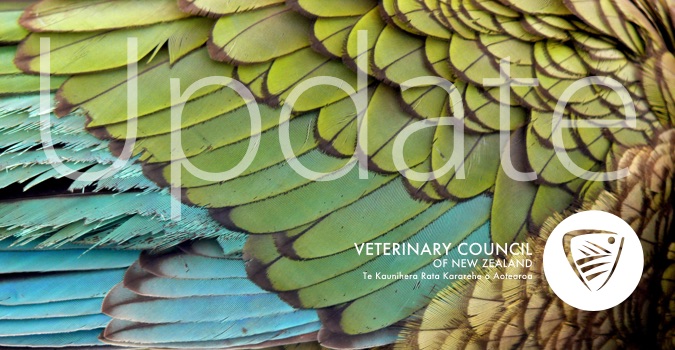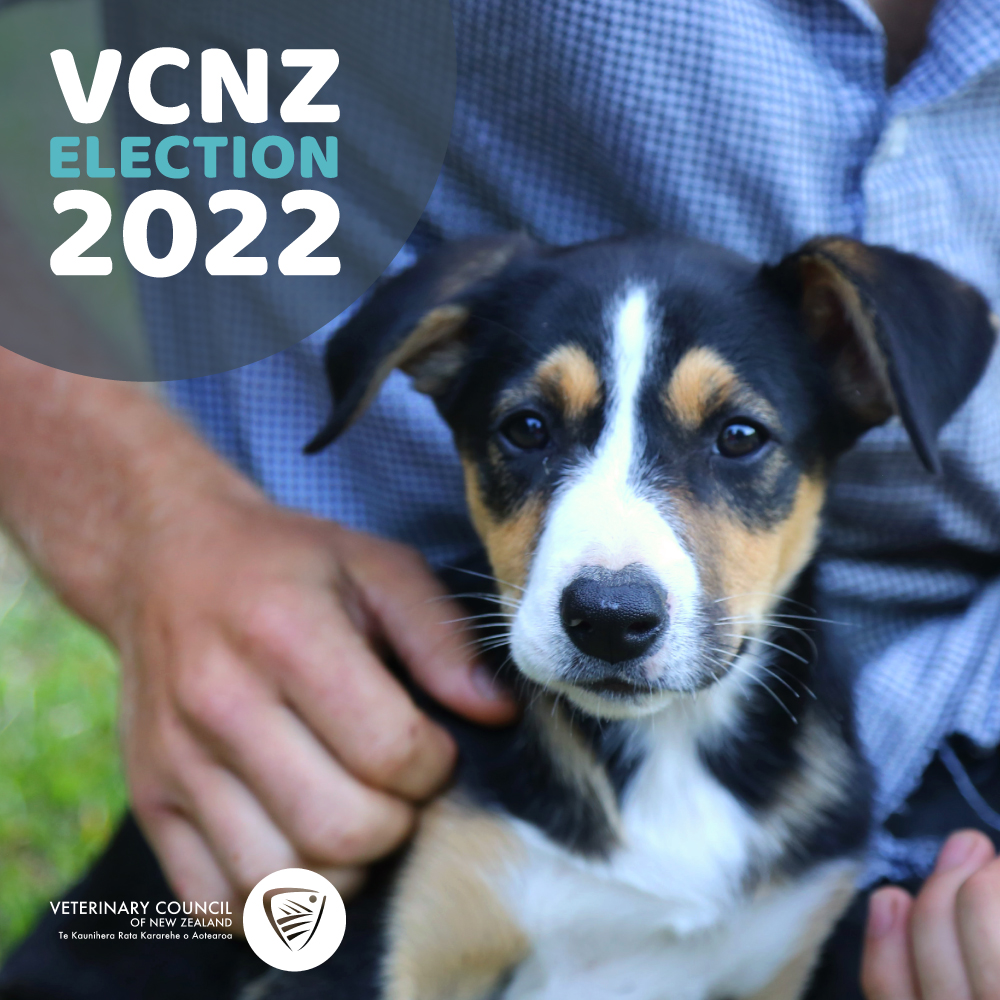
Update for vets July 2022
Welcome to to our July update. This issue includes our recent statement on dealing with hazardous situations as well as details about this year’s VCNZ election, the NZVET Mentoring Support programme, and the Mentorloop platform, as well as news from across the sector.
Veterinary care and hazardous situations
We’re aware of the court case that concluded this week in which a dog owner was unsuccessfully prosecuted after the dog bit and seriously injured a veterinarian.
This was a prosecution by a local authority under the Dog Control Act. We do not consider that it has any bearing on veterinary standards and we will not be changing the way we interpret of apply our standards as a result of it.
We acknowledge that the outcome has caused distress to many veterinarians in the community. With that in mind, we have prepared some guidance for veterinarians on what they can do when they feel their health or safety is at risk.
Read the guidance
Authorising Gabapentin without examination
We’ve also published some technical advice on authorising Gabapentin for a new client before having examined the animal. We strongly encourage all veterinarians to ensure you have plans in place to minimise risks associated with seeing higher risk animals in advance and this advice may help clarify one of the tools available.
Read the advice
Upcoming VCNZ Election
The 2022 Veterinary Council of New Zealand election will take place in just a few months, and now is the time to think about whether you would like to put your name forward as a candidate.
We will soon be posting an information pack online which will contain a nomination form and details about what is expected from Council members. Nominations will open in August.
The Council is VCNZ’s governing body and responsible for ensuring we carry out our functions under the Veterinarians Act. There are seven members on the Council. Three are elected by veterinarians; two are lay people appointed by the Minister of Agriculture; one is a veterinarian also appointed by the Minister; and the seventh member is the Academic Programme Director of the undergraduate veterinary programme at Massey University.
Being on the Council is a fantastic opportunity to increase your involvement in your profession. Voting will take place online this year, and we will share information about when and how you can cast your votes closer to the time.
If you have any questions about the election, please feel free to contact us for a confidential chat. We will also be hosting an election webinar to provide more information and will share details for this soon.

A message from NZ’s Chief Veterinary Officer
 As the Ministry for Primary Industries Chief Veterinary Officer, an important part of my role is to identify ways to build relationships that bind our animal health community together.
As the Ministry for Primary Industries Chief Veterinary Officer, an important part of my role is to identify ways to build relationships that bind our animal health community together.
While MPI is the largest single employer of veterinarians in the country (we employ 300 veterinarians working in five of the nine MPI business units, across all regions, including on overseas posts) the animal health system extends much further than MPI. Our system needs private practitioners, industry representatives and the public veterinary service to work together in collaboration.
One way we already do this is in MPI’s Animal General Surveillance Programme, our system for early detection of exotic and emerging diseases. This programme relies on private veterinarians across all of New Zealand, constantly being alert for possible exotic diseases. This cooperation between public and private veterinarians is an example of the two way communication and partnership that builds enduring relationships.
You can read about the exotic disease investigations in Surveillance magazine ( https://www.sciquest.org.nz/browse/publications/view/106 ) and if you would like to contact one of the investigation team to discuss a case that is worrying you, please don’t hesitate to ring 0800 80 99 66.
As events such as M. bovis have shown, it’s essential that public and private veterinarians and industry have relationships in place to ensure that our animal health system serves New Zealand’s day-to-day needs, as well as being ready for the challenges that will emerge in the future. You can find out more about the hotline, including what to expect when you call and exotic disease factsheets on our webpage .
You will have heard about the outbreak of foot-and-mouth disease (FMD) in Indonesia. Indonesia has been free of FMD for three decades, and this outbreak reminds us that no country can afford to stop being vigilant. If you would like to remind yourself of what FMD looks like, here is some information.
NZVET Mentoring Support programme
NZVET Mentoring Support, which was developed by VCNZ and the New Zealand Veterinary Association, is part of our Continuing Professional Development (CPD) programme.
The programme uses Mentorloop, a platform that matches recent graduates with experienced mentors who can share their knowledge, skills, and experiences. Once connected, mentees can discuss ideas and receive ongoing work, wellbeing, goal setting and learning support from their mentors. All participants can take part in online learning to get the most out of mentoring.
Recently, we published some stories on our website about veterinarians who have taken part in the programme and what they have gained from the experience. You can read their stories here .
If you are interested in becoming a mentor, we are always interested in hearing from you. You can click here to sign up.